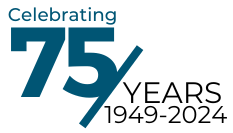You may have noticed that companies seem obsessed these days with getting you to “like” them on Facebook. You can’t browse the internet without being inundated with requests to like a company’s Facebook page or with offers and contests dependent on doing so.
From the company’s perspective, a like on Facebook offers a chance to stay “top of mind,” a marketing concept that means a consumer thinks of a specific brand first for a certain product or service by having its promotional messages show up in that user’s Facebook news feed. Being liked can also be used as a metric to determine the performance of social media campaigns and other promotional activities. The more a company is liked, the more successful the promotion is thought to be.
But is this really the case? A recent study conducted by Professor Alisha Horky of Elon University and Professor Mark Pelletier of Radford University have questioned the promotional success of “like me” campaigns.
What Does Liking Mean?
In the study conducted by Horky and Pelletier they tried to understand from 150 Facebook users the motivation behind liking a brand. The primary reason that consumers choose to like a brand on Facebook is a sense of loyalty or obligation to support a brand. The largest percentage of respondents said they liked a brand simply because they felt that’s what a loyal fan should do. The next biggest share of respondents was focused on getting something in return for their like.
Interestingly, only a relatively small percentage of respondents reported that they “liked” the brand on Facebook because they simply liked (had a positive attitude toward) the brand. This differs from loyalty in subtle ways. Consumers may like a brand without ever having purchased the products. Feeling loyal to a brand is associated with users that have actually purchased the product.
Additionally, while half of the users indicated that they had read or viewed the brand’s post since first liking the brand, only 17 percent reporting actually commenting on these posts. It does appear though that the user is consciously paying attention to brand posts, which indicates that they are interacting with the brand more than prior to liking it.
This suggests that generating Facebook likes can indeed have positive outcomes for a company, including having more interaction with its fans.
Understanding the Results
So what does this all mean?
Horky and Pelletier concluded that simply adding up Facebook likes does not necessarily tell us how engaged a customer is with a company’s brand. In other words, quantity of likes does not equal quality of relationships.
In addition, brand and social media managers should not automatically assume that new Facebook followers are new to the company. Many respondents felt that it was their obligation to a favorite or oft-purchased brand to like that brand on Facebook.
Although passive engagement with followers is perhaps not what gets the most attention when pundits discuss the benefits of Facebook engagement, it still offers benefits, such as becoming more “top of mind.” Brand managers should not always assume that their most active Facebook followers are the only ones getting the message.
So next time you “like” a brand on Facebook, think about what you are telling the company. If you’re loyal and engaged to a brand, like it, share it and let them hear from you.
Sponsored by:



